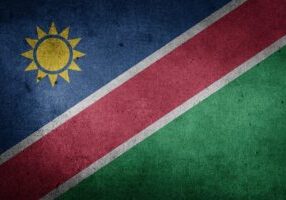6 January 2016
Dear Sir / Madam
Mandarin: paving the way for a new area of colonisation
A departmental circular, “Circular S10 of 2015: incremental implementation of Mandarin as a non-official language from 2016-2018” has been distributed. According to this circular: “The roll-out of Mandarin will be incrementally implemented in schools as follows: Grades 4-9 and 10 will be implemented in January 2016, followed by grade 11 in 2017 and grade 12 in 2018,” signed by general Paddy Padayachee, acting director of the Department of Education. The two-page document ends by appealing to the recipients to publicise the message: “You are kindly requested to bring the contents of circular S10 of 2015 to the attention of all provincial and district officials, and principals and teachers of both public and independent schools.” We wish to inform you and warn you about the current unrest at grassroots. Parents, teachers and teacher unions, such as Sadtu, have become increasingly volatile and agitated about the way a foreign language is being ‘forced’ on our local people whilst neglecting African languages. This noticed agitation is likely to flare up to a full scale disruption of Basic Education (DBE) in 2016, against this “worst form of Imperialism” (Mail and Guardian/12 Aug) enforced on us by our own Government. The deep anger and frustration about Circular S10, rises from our history of oppression through colonisation and apartheid in South Africa. Previous hurts and wounds have been re-opened with memories of the oppressive apartheid policy when Afrikaans was forced onto other culture groups thereby causing the 1976 Soweto uprising.
The new potential coloniser, Mandarin, is currently responsible for joint threats among grassroots to unite against voting for Mr Zuma due to his betrayal of our African heritage. Although Mhlanga, DBE spokesperson, has stated that Mandarin is only an optional foreign language, why is Zuma burdening us with Mandarin, whilst disregarding our heritage and mother tongue?
During 2014, the DBE unveiled a policy to prioritise and improve African languages like Xhosa, Zulu, Sesotho and Tswana. This policy however was delayed due to an additional 30 minutes of school day “which would be too tiring for school children”. Surely this decision to downgrade indigenous languages in order to teach Mandarin, which contains 500 characters (letter types), is not the request of parents. There is something wrong. Bearing in mind that the Cofimvaba Project which involved 70 schools using isiXhosa as medium, overturned an average of 20% to 65%, the inclusion of Mandarin at this point in time, seems irrational and irresponsible. We ask whether the S10 circular has been based on empirically sound language-in-education policy research before being placed among other world languages repertoire. Communities are asking why three Confucius institutes endeavour to promote the Chinese culture here on home soil. Why are our police in the Eastern Cape expected to learn Mandarin in favour of other African languages? Why this obsession with Mandarin? When visiting, working or studying in other countries, such as France, Germany, Poland, people study that country’s language. Did Mr Zuma’s agreement with China also include the learning of Xhosa, Zulu, Sotho or Venda on Chinese home soil or has he not perhaps sold us to a foreign nation and their language?
Many are asking what other fine print in the Five to Ten Year Strategic Program for Cooperation contract, signed with the Chinese in December 2014, did Mr Zuma perhaps miss when viewing the large sums of promised Chinese money, which may place us under bondage to a foreign country yet again?
South Africa’s democratic society is demanding answers to these undemocratic and secretive decisions. Why not publish the full Chinese contract? The people of South Africa need to know what Mr Zuma has agreed to with China regarding us, our children, our resources and our future. We cannot accept the unwise and irrational actions and agreements of a government headed by Mr Zuma any longer. It is no wonder that the Economist branded “Zuma’s disastrous management” and South Africa as “the Hollow State” (19 Dec) referring to our national debt which has risen from 26% in 2008 to 50% in 2015 whilst showing a 25% growth in funding for public service staff.
The people are disgusted and discontented. Various communities have declared that they will take to the streets and to parliament. Votes at the upcoming election will surely turn against the ruling party. Grassroots have declared that they need leaders who will hear the cries of their own forgotten and forsaken people.



